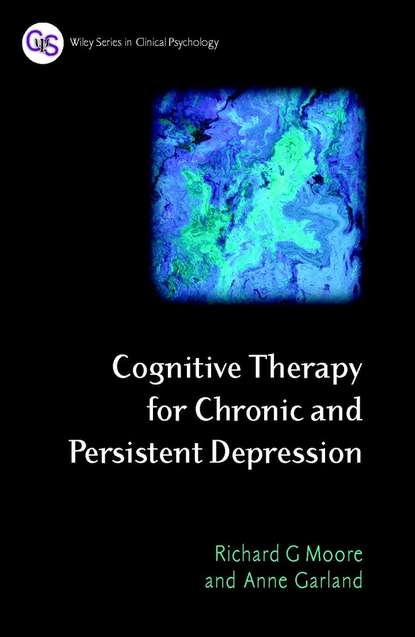Cognitive Therapy for Chronic and Persistent Depression
Полная версия
‘This volume provides the most comprehensive presentation to date of the phenomenology, clinical aspects and cognitive therapy of persistent depression. The text is highly readable, replete with illustrative case material, and highlighted by concise summaries at the end of each chapter. The treatment approach, already validated in the famed Cambridge–Newcastle clinical trial, is an invaluable contribution.’ Aaron T. Beck, M.D. Drawing on extensive clinical experience, Richard G. Moore and Anne Garland present a cognitive model of persistent depression that places particular importance on the role of thinking styles, underlying beliefs, subtle forms of avoidance and environmental factors. For the practitioner, this book offers guidance on how to address particular issues that commonly arise at each stage of therapy, such as: the patient is reluctant to engage in therapy the patient’s negative thinking does not respond to standard therapeutic techniques the patient’s negative beliefs have much basis in their experience the therapist becomes demoralised by the apparent lack of progress in therapy Through extensive clinical material, Cognitive Therapy for Chronic and Persistent Depression demonstrates how entrenched negative thinking patterns and ongoing avoidance can be addressed to achieve significant change in many people’s lives. This book is essential reading for any therapist working with these hard to help patients, such as clinical psychologists, psychiatric nurses, psychiatrists, social workers and counsellors.
- О книге
- Читать














